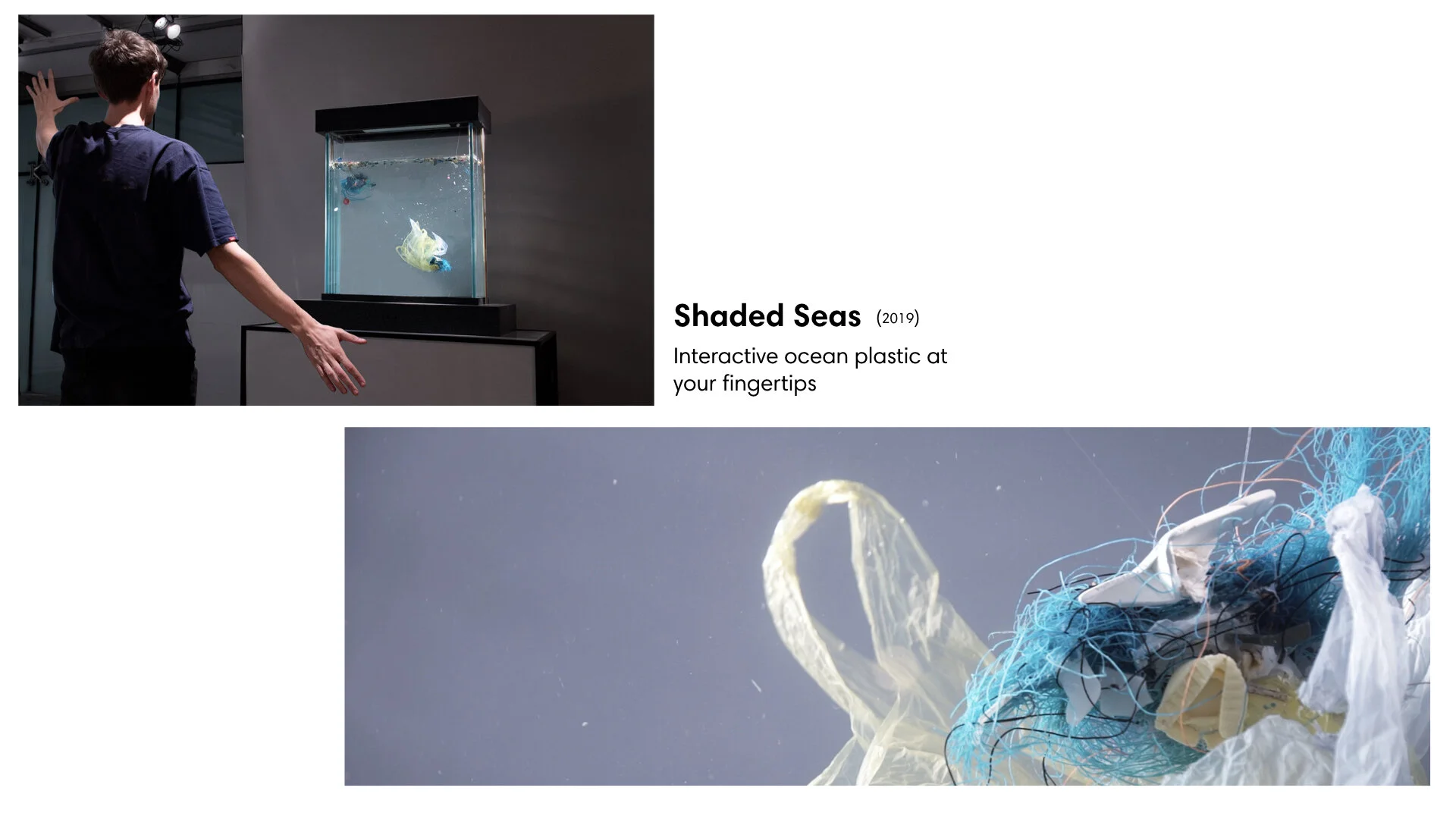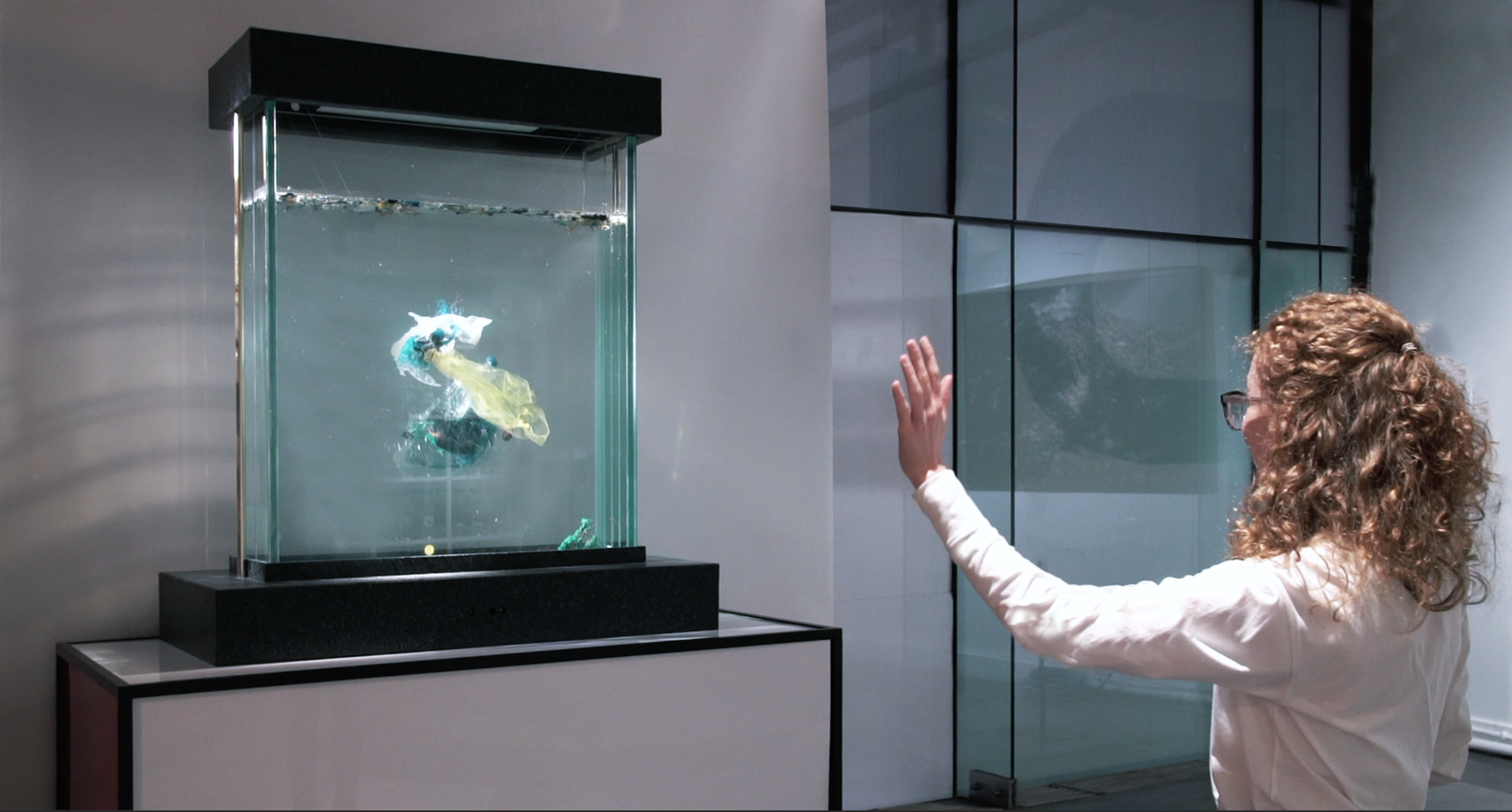SHADED SEAS
Interactive ocean plastic at your fingertips
The interactive art installation Shaded Seas demonstrates that the power to change the overuse of plastic is in our own hands. The work aims to raise awareness about the plastic problem in our oceans, as still 10% of the 260 Million tons of plastic produced every year ends up in our oceans.
Using sensors and rapid image tracking the plastic sculptures follow every movement of your hands. At first, the floating pieces of plastic originating from the great garbage patch in front of Hawaii, have a hypnotic and elegant feel. However, slowly you realize that these plastics will follow you for as long as you are around.
Once plastic ends up in our ocean, it becomes difficult, if not impossible, to recycle. The work serves as a not-so-gentle reminder that every plastic spoon, cup, can or piece of packaging will follow us as a plastic shadow for the rest of our lifespan.
The reduction and production of these plastics are not slowing down quickly enough, so we need to take the matter into our own hands. Industries will change by the rejection of plastics by consumers. The more aware we are of the choices we make the quicker change will happen.
Plastic awareness art based on scientific facts as shown in the Science Gallery, is necessary to shift the needle, to add feelings to the facts, to make us think again about the use of plastics in our daily life.
The reflective behavior of the installation is based on the latest scientific research, showing that microplastics degrade into nanoplastics and have the potential to enter our bloodstream, slowly turning us into plastic human beings. "Shaded Seas" shows that we are slowly becoming one with plastic, step by step, choice by choice.
Commissioned by
Science Gallery Dublin
Supported by
Creative Industries Fund NL
Production
Woven Studio
Technical Build
Front404
Head of Production
Sophie de Krom
With special thanks to
Plastic Soup Foundation, Cian Walsh, Eamonn Fox and the rest of the Science Gallery team, music by End of Times.
Research and
collaboration
Collaboration
Plastic Soup Foundation
Press
‘Shaded Seas’ by Thijs Biersteker. Commissioned by Science Gallery Dublin for the exhibition PLASTIC.







